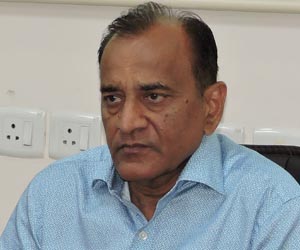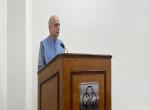India recently observed the 75th anniversary of its Constitution Day. It was an occasion to celebrate the robustness of our Constitution which ensures a slew of fundamental rights to all citizens of the country. It was also an occasion to bear in mind that these rights need constant protection. This vigil is expected from Parliament and the Executive. The role of the judiciary is critical to this endeavour, and as we have seen on multiple occasions, the courts have reinforced both the spirit and the letter of the Constitution whenever they felt it became necessary to make such interventions. The judiciary (along with the Armed Forces) is the most trusted institution in India and is expected to be a saviour in times of crises—being the last hope to secure justice.
But we must not forget that even the highest court of the land had failed to rise to the occasion when the imposition of its authority was needed the most to protect the rights of citizens and democracy. This may have been an aberration, may have happened nearly half a century ago, and may have been corrected by the very same court subsequently. Nevertheless, the incident remains a grim reminder of the havoc that can be caused to the country’s democratic traditions when, not only is the Constitution emasculated but also the court stamps its approval to such brazenness.
The infamous reference being made is to the A.D.M. Jabalpur versus Shiv-kant Shukla case, otherwise also referred to as the Habeas Corpus case, which was rooted in the changes made to the Constitution following the proclamation of Emergency and the actions that followed. Just as we celebrate Constitution Day on 26 November every year, we must recall without fail every year the fateful day of 28 April 1976, when a five-judge Bench of the Supreme Court delivered a majority judgement that devastated the very spirit of the Constitution. Alongside, we should also remember—with respect and gratitude—the lone Justice who, although in a minority of one, had the courage to show the mirror to the powers-that-be.
Various people, including political leaders, opposed to the then incumbent government, had been locked in jails across the country within hours of the declaration of Emergency. The government used Article 359, which said, ‘Where a proclamation of Emergency is in operation, the President may by order declare that the right to move any court for the enforcement of such of the rights conferred by Part III as may be mentioned in the order and all proceedings pending in any court for the enforcement of the rights so mentioned shall remain suspended for the period during which the proclamation is in force or for such shorter period as may be specified in the order’.
Many of these detained people lodged writs of habeas corpus with the High Courts, protesting against their arrest, and were granted relief. The High Courts maintained that, even though Article 359 suspended the enforcement of Articles 14, 21 and 22 (dealing with Fundamental Rights), the courts could still determine if the detention orders complied with the provisions of the Maintenance of Internal Security Act (MISA) under which the arrests had been done. In other words, judicial scrutiny of the detentions was still legally permissible, and if the arrests were found to be in violation of the Act, then they could be held invalid.
Alarmed by this turn of events, the state authorities filed appeals before the Supreme Court against extending such reliefs, directing its attention to the constitutional provisions under Article 359. This is how the Habeas Corpus case came to be heard by the apex court. Despite the persuasiveness of the government’s counsels, most independent observers believed that the court would rule against the detentions, given that the High Courts had given well-reasoned decisions against such arrests. It was assumed that, even if the Supreme Court did not question the suspension of fundamental rights as being violative of the basic nature of the Constitution, it would at least allow for judicial scrutiny to test if the arrests met the requirements of MISA.
To the shock of millions of Indians, the Bench comprising Chief Justice of India A.N. Ray, and Justices Hans Raj Khanna, M. Hameedullah Beg, Y.V. Chandrachud and P.N. Bhagwati, in a 4:1 verdict, said that the detentions were legal. Among other things, they held that Article 359 not only suspended Articles 14, 21 and 22, but it also barred a detained person from approaching the court for relief through a writ of habeas corpus; that the person affected could not question his detention for any reason whatsoever; and, that the apex court was not competent to decide if the detentions were mala fide.
The sum total of the verdict was that, in the period that Emergency was in force, a person detained under MISA (or for that matter any other detaining Act) had no remedy. All this, in a democracy!
As if this was not bad enough, Justice Beg lauded the government authorities for ensuring the ‘welfare’ of the detained, who were ‘well-housed, well-fed, and well-treated’. Such care, he said, was ‘almost maternal’. He added that even ‘parents have to take appropriate preventive action against those children who may threaten to burn down the house they live in’.
The saving grace was the dissenting order by Justice H.R. Khanna. He stated that even when Emergency was in force, the right of a person to approach the courts could not be denied. He said that ‘This [the right] was an essential postulate and basic assumption of the rule of law in every civilised society’. No authority, he added, could take away the right of a High Court to hear a writ of habeas corpus. For his trouble, Justice Khanna, who was in line to become the Chief Justice of India, was superseded by Justice Beg (who had hailed the state for extending such touching maternal care to the detainees). Justice Khanna resigned, with his dignity intact, and his reputation etched in the pages of history.
Two years later, with a new government at the Centre, Article 359 was amended through the 44th Amendment Act. The amendment ensured that, while during Emergency, the right to move any court for the enforcement of rights conferred on citizens under Part III of the Constitution (that deals with Fundamental Rights) can indeed be suspended, this provision would not apply to Articles 20 and 21—dealing with conviction for offences and the right to life or personal liberty respectively.
A grievous wrong was thus righted.
(The paper is the author’s individual scholastic articulation. The author certifies that the article/paper is original in content, unpublished and it has not been submitted for publication/web upload elsewhere, and that the facts and figures quoted are duly referenced, as needed, and are believed to be correct). (The paper does not necessarily represent the organisational stance... More >>
Image Source: https://media.istockphoto.com/id/1189993079/photo/supreme-court-of-india.jpg?s=612x612&w=0&k=20&c=Bw8Q6Emyj9xu0akz1jW5MOP5Fnr1qxngZvcpbLuMtnY=











Post new comment